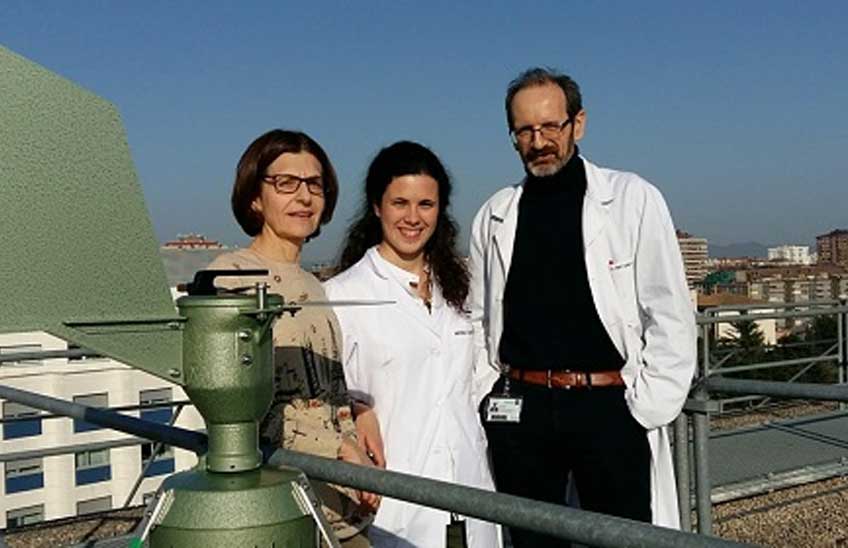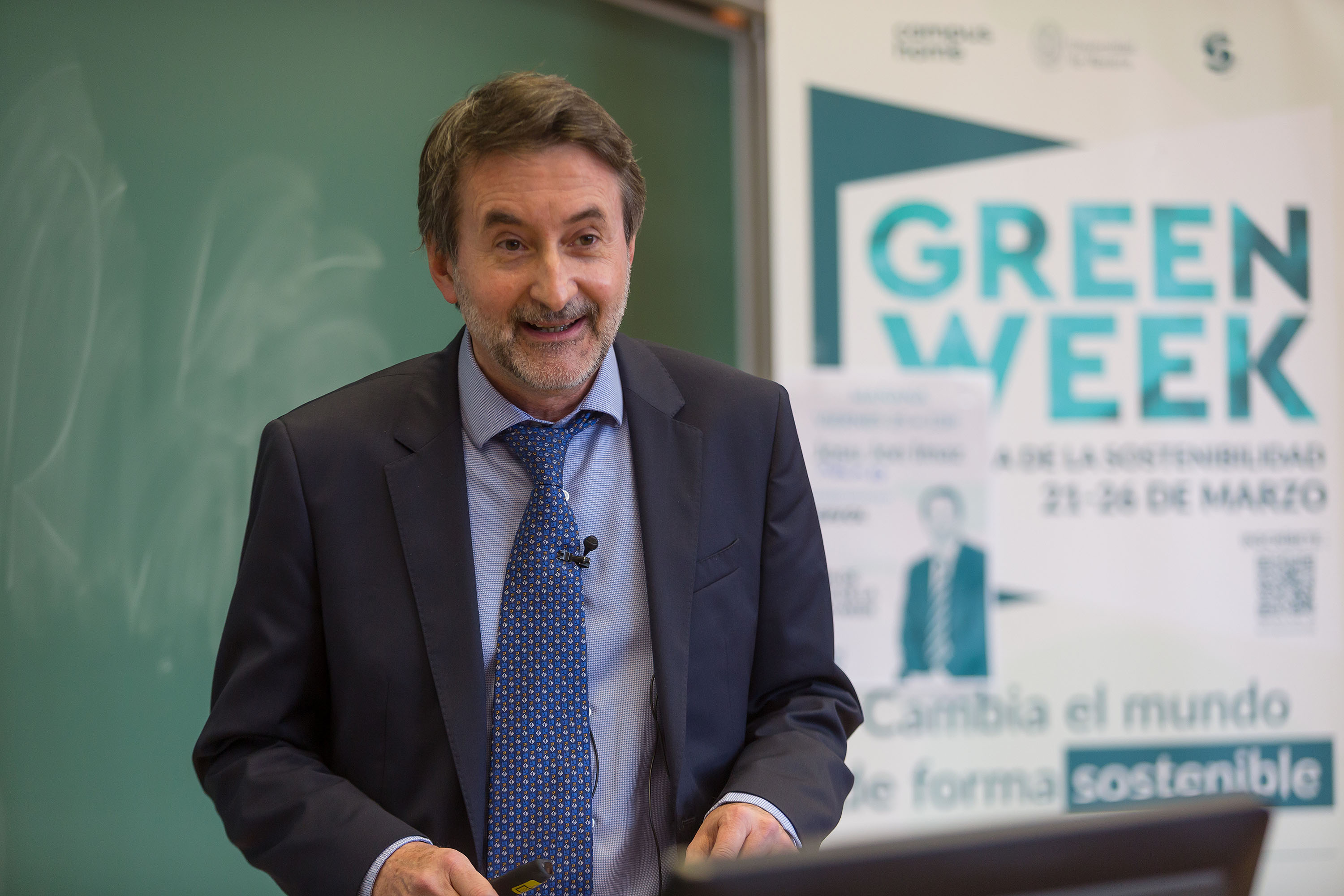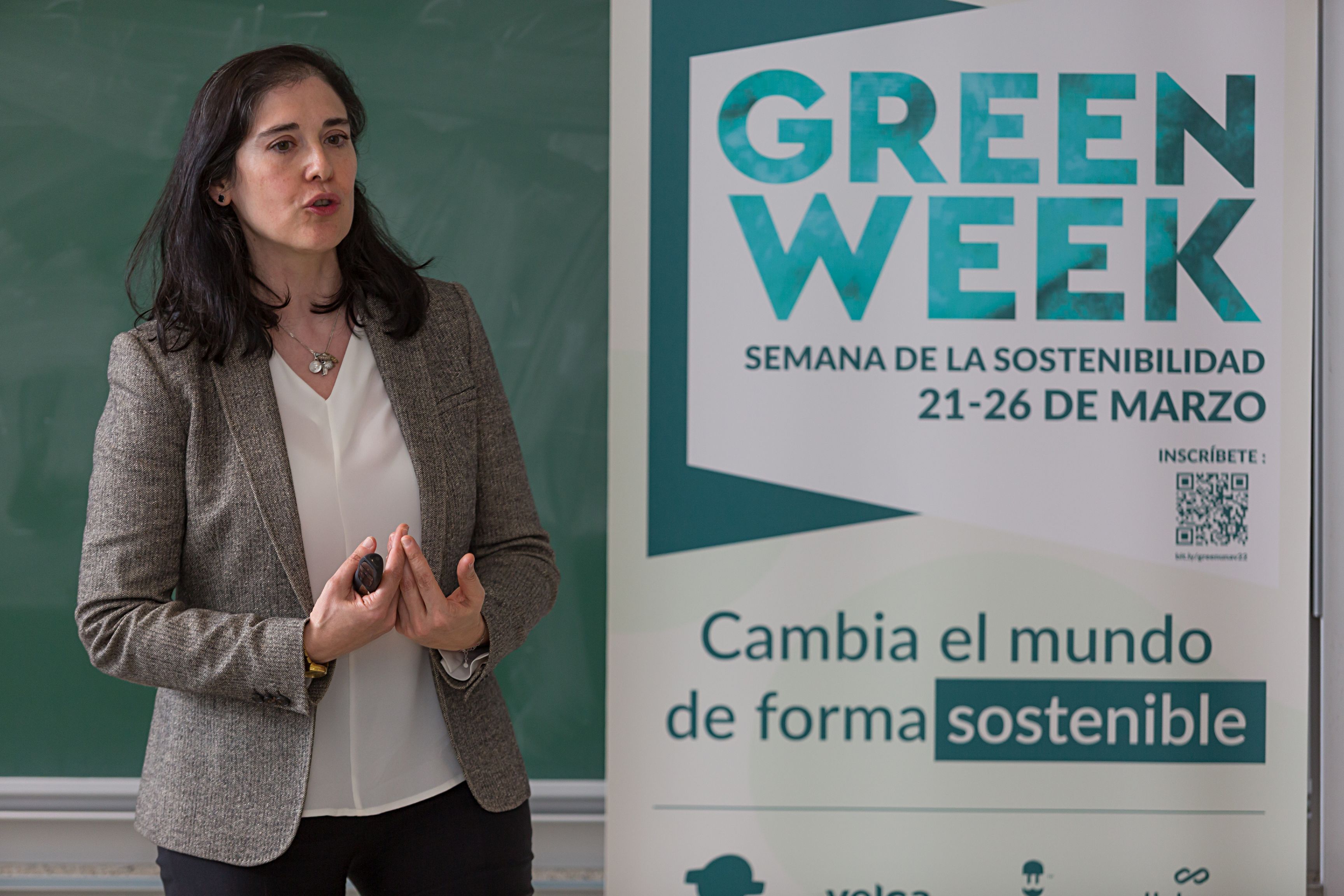International study concludes that exhibition pollen may increase risk of coronavirus infection
Four researchers from the University of Navarra - in the framework of project LIFE NAdapta of the regional government - have contributed to this study with pollen measurements in Pamplona, Tudela and Santesteban.

FotoCedida/<br>Mónica González, Arturo Ariño y Anabel Pérez de Zabalza en la instalación del equipo en 2019
16 | 03 | 2021
An international study has concluded that the level of pollen in the atmosphere is an important risk factor for COVID-19. This research, which was conducted in 31 countries on five continents, was recently published in the scientific journal Proceedings of the National Academy of Sciences (PNAS).
For this work air pollen data from 130 stations have been analyzed and correlated with SARS-CoV-2 infection, meteorological factors and other variables such as population density. Pollen content explains 44% of the observed variability in infection fees .
Among the more than 150 researchers who contributed to this work are Arturo H. Ariño, Mónica González, Estrella Robles and Anabel Pérez de Zabalza, scientists from the School of Sciences of the University of Navarra.
Pollen measurements in Pamplona, Tudela and Santesteban
These researchers from the University of Navarra have carried out pollen monitoring during the last two years, collecting weekly samples at Clínica Universidad de Navarra, the Reina Sofia Hospital in Tudela and the Doneztebe/Santesteban Health Center, at partnership with the Allergology Service of the Navarra Hospital Complex. These measurements have been carried out on behalf of the high school Public Health and Labor of Navarra (ISPLN) for the project LIFE NAdapta, a European project that aims to develop adaptation measures against Climate Change, whose health contents are coordinated by the ISPLN.
"At the University we classify pollen, we calculate how many grains there are per cubic meter of air each day, and with these data and others such as climatological, ecological or epidemiological ones we prepare a weekly forecast that the Government of Navarra and the City Councils distribute to the public," says Arturo Ariño, researcher of Biodiversity and Environment Institute of the University of Navarra.
One of the recommendations of the international study is the use of particle filter masks for spring in those people who are at high risk, such as allergy sufferers. In this sense, Arturo Ariño assures that most of the hygienic masks, if used properly, can reduce the exhibition to pollen and therefore minimize the allergic symptoms and limit the infection by COVID-19.
" Pollen is always in the air, at different concentrations depending on the place, the day or the time of year. You can't completely avoid exhibition, although you can greatly reduce it indoors through filters and particle traps, and generally keeping the environmentclean."
reference letter bibliography.
Athanasios Damialis, et al. Higher airborne pollen concentrations correlated with increased SARS-CoV-2 infection rates, as evidenced from 31 countries across the globe. Proceedings of the National Academy of Sciences Mar 2021, 118 (12), pp.1-10. DOI: 10.1073/pnas.2019034118.




